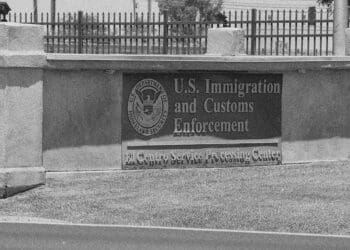Though they face court challenges, new federal rules seek to improve protections for pregnant workers, prevent employees from being locked into restrictive contracts and raise pay for millions of workers. A team from the law firm Arnall Golden Gregory keep all the changes in focus.
Megan Mitchell, Ashley Kelly, Theresa Kananen and Henry Perlowski, co-authors of this article, are partners in the Atlanta office of Arnall Golden Gregory.
In April, federal agencies unleashed a deluge of rulemaking and other activity on employers. The Equal Employment Opportunity Commission (EEOC) announced its rule implementing the Pregnant Workers Fairness Act and issued formal guidance regarding harassment in the workplace. The Department of Labor (DOL) increased the minimum compensation thresholds for white-collar exemptions from overtime. And, making headline news everywhere, the Federal Trade Commission (FTC) issued a nationwide ban on noncompetes in the employment context (with limited exceptions).
Although the FTC, EEOC and DOL rules are facing legal challenges and could be paused, now is still the time for employers to plan and prepare for compliance.
Jump ahead to topic:
EEOC’s Pregnant Workers Fairness Act (PWFA) final rule
On April 15, the EEOC announced a final rule implementing the PWFA: The act, which has been in effect since 2023, requires covered entities to provide reasonable accommodations to qualified employees with known limitations related to, affected by or arising out of pregnancy, childbirth or related medical conditions, unless the accommodation will cause the employer an undue hardship.
With the publication of the final rule, employers now have specific guidance regarding PWFA’s compliance obligations, and employers should anticipate changing the interactive process and the accommodations they must provide to impacted workers.
Q: What does the final rule address?
A: The final rule provides guidance and examples for covered employers to follow when addressing requests for reasonable accommodations from employees with pregnancy-related conditions. It takes a broad view of coverage, meaning that many employers will be required to provide accommodations in a wide range of scenarios. For example, employers may be required to: allow additional, longer or more flexible breaks for employees to drink water, eat, rest or use the restroom; provide additional leave for recovery from pregnancy-related conditions; and/or allow for schedule changes or remote work, depending on the scenario.
Notably, an employee may be considered “qualified” under the PWFA even if they are unable to perform one or more essential functions of their job if: (i) the inability to perform an essential function is for a “temporary” period; (ii) the employee will be able to perform the essential function(s) in the near future, as determined on a case-by-case basis; and (iii) the inability to perform the essential function(s) can be reasonably accommodated.
The final rule defines a “temporary” period as “lasting for a limited time, not permanent, [but] may extend beyond ‘in the near future.’” The final rule further states that “in the near future” generally means 40 weeks from the start of the temporary suspension of an essential function based on the time of a full-term pregnancy. That means that a reasonable accommodation may be required for a significant period of time.
The final rule also explains that certain job modifications will be found to be reasonable accommodations that do not impose undue hardship “in virtually all cases.” Such job modifications include carrying or keeping water nearby and drinking as needed, allowing additional restroom breaks as needed, allowing sitting for those whose work requires standing and standing for those whose work requires sitting as needed and allowing breaks to eat and drink as needed.
Employers should review resources posted on the EEOC’s website, including its “What You Should Know” and a summary of key provisions postings.
Q: When does the final rule go into effect?
A: Seventeen states have challenged the final rule in a case pending before the U.S. District Court for the Eastern District of Arkansas, and another two states have filed suit in the Western District of Louisiana. More challenges could follow. In the first case, the court heard oral argument on the motion to enjoin the final rule June 3, just before the final rule is scheduled to go into effect June 18. This very short timeframe means employers should be prepared for compliance now.
BACK TO TOP
The Federal Trade Commission’s Noncompete Ban
On April 23, the FTC announced its Noncompete Clause Rule, which issued a prospective and retrospective nationwide ban on most noncompete clauses.
Q: Whom does the noncompete rule apply to?
A: It applies to all employers subject to the FTC’s jurisdiction. Notably, banks are not regulated by the FTC, and generally speaking, the FTC also does not regulate nonprofits, although the analysis of whether an entity is a nonprofit organization for purposes of FTC jurisdiction is not always straightforward. In particular, healthcare nonprofits should monitor developments closely, as the noncompete rule specifically condemns use of noncompetes involving healthcare providers, and the FTC did not adopt a carve-out for the healthcare industry.
The noncompete rule also broadly applies to employees, independent contractors, externs, interns, volunteers and more.
Q: Is the noncompete rule really a complete ban?
A: Yes. If the noncompete rule goes into effect, it would void almost all existing noncompetes and ban them for almost all employees moving forward. It considers a noncompete to be any term or condition of employment that prohibits a worker from, penalizes a worker for or functions to prevent a worker from seeking or accepting work in the United States with a different person, where such work would begin after the conclusion of the employment that includes the term or condition or operating a business in the United States after the conclusion of the employment that includes the term or condition. This definition of noncompete would include forfeiture of compensation provisions, overbroad training repayment agreement provisions (TRAPs) and severance provisions that are conditioned on compliance with noncompetition covenants.
Q: When does the noncompete rule go into effect?
A: If it survives legal challenges, the noncompete rule will go into effect Sept. 4 (120 days after it was published in the Federal Register on May 7).
Q: What happens when the noncompete rule goes into effect?
A: In addition to voiding existing and future noncompetes with workers, it would also require employers to notify current and former employees that their noncompetes are no longer enforceable as of the rule’s effective date. The FTC has provided model language for this notice.
Q: Are there any exceptions?
A: Yes. The noncompete rule does not prohibit noncompetes in a bona fide sale-of-business context, and noncompetes with “senior executives” may still be enforceable if they are entered into before Sept. 4. Existing causes of action to enforce noncompetes are also excepted from coverage under the noncompete rule.
Q: Who are “senior executives”?
A: The noncompete rule defines a “senior executive” as a worker who was in a policy-making position and who received from a person for the employment:
- Total annual compensation of at least $151,164 in the preceding year; or
- Total compensation of at least $151,164 when annualized if the worker was employed during only part of the preceding year; or
- Total compensation of at least $151,164 when annualized in the preceding year prior to the worker’s departure if the worker departed from employment prior to the preceding year and the worker is subject to a noncompete clause.
Total annual compensation can include salary, commissions, nondiscretionary bonuses and other nondiscretionary compensation earned during the preceding 52-week period.
According to the noncompete rule, a “policy-making position” means a business entity’s president, chief executive officer or the equivalent; any other officer of a business entity who has policy-making authority; or any other person who has policy-making authority for the business entity similar to an officer with policy-making authority. In turn, the noncompete rule defines “policy-making authority” to mean “final authority to make policy decisions that control significant aspects of a business entity or common enterprise and does not include authority limited to advising or exerting influence over such policy decisions or having final authority to make policy decisions for only a subsidiary of or affiliate of a common enterprise.” There will be significant debate about whether an employee subject to a noncompete Sept. 4 is a “senior executive,” understanding that the FTC clearly intended to limit the application of this exception.
Q: What is the current status of the legal challenges to the noncompete rule?
A: The U.S. District Court for the Northern District of Texas is addressing challenges to the noncompete rule filed by Ryan LLC, a tax services and software provider, and the U.S. Chamber of Commerce. The plaintiffs have asked the court to prevent the noncompete rule from going into effect until the litigation concludes, and the court is expected to rule on the motion by July 3.
Q: Does the FTC’s noncompete ban also apply to covenants not to solicit?
A: By its name, the noncompete rule applies only to noncompetes, but the definition of a noncompete includes any term or condition of employment that prohibits a worker from, or penalizes a worker for, “seeking or accepting work … with a different person.” On its face, that definition could encompass a covenant not to solicit the former employer’s clients for a competing business, particularly where an industry has a narrow range of customers.
Q: What other avenues do employers have to protect against unfair competition?
A: Businesses can continue to prohibit competition during employment, and they may still use targeted nonsolicitation and confidentiality or nondisclosure agreements to protect against use or disclosure of confidential or proprietary information or trade secrets.
BACK TO TOP
The DOL’s new exemption rule
On April 26, the DOL issued a final rule addressing the salary thresholds for exemptions for executive, administrative, professional, outside sales and computer employees.
Q: What does the rule do?
A: The rule schedules two increases to the minimum compensation thresholds necessary for workers to qualify for the so-called white collar exemptions to the overtime requirements of the Fair Labor Standards Act, as shown in the below table:
| Date | Standard salary level | Highly compensated employee total compensation threshold |
| Before July 1, 2024 | $684/week, $35,568/year | $107,432/year, including at least $684 per week paid on salary or fee basis |
| July 1, 2024 | $844/week, $43,888/year | $132,964/year, including at least $844 per week paid on salary or fee basis |
| Jan. 1, 2025 | $1,128/week, $58,656/year | $151,164/year, including at least $1,128 per week paid on salary or fee basis |
Q: When does the rule go into effect?
A: The first increase in compensation levels goes into effect July 1 and the second Jan. 1, 2025.
Q: How should employers prepare?
A: About 4 million employees are expected to become nonexempt when the new rule goes into effect. Employers should take immediate steps to inventory all positions and individuals who fall in the gaps created by the salary threshold increases and, among other things, attempt to determine the overtime these employees are likely to work and whether employers can manage and reduce or eliminate increased overtime expenditures.
Q: Are there any legal challenges to the rule?
A: Two lawsuits have been filed in the Eastern District of Texas, the court that struck down a similar update to the OT rule by the Obama administration in 2017. One lawsuit was brought by several business groups, and the other was brought by the state of Texas. The state’s lawsuit is the “lead” lawsuit, with the state also filing a motion for temporary restraining order and/or injunction to delay or permanently preclude the adoption of the DOL rule. The court is in the process of setting a briefing schedule on Texas’ request for relief and we expect that the court will rule on this request before the OT rule is set to go in effect July 1.
BACK TO TOP
EEOC’s updated workplace harassment guidance
After publishing proposed guidance in October 2023, the EEOC published its updated enforcement guidance on workplace harassment April 29.
Q: What does the guidance cover?
A: Given the “renewed public focus” on sexual and racial harassment cases, the guidance reemphasizes long-established law in the context of the modern workplace. It focuses on the three components of a harassment claim: (1) covered bases and causation; (2) discrimination with respect to a term, condition or privilege of employment; and (3) liability. It provides various examples of prohibited discrimination and harassment with a particular focus on protections for LGBTQIA+ employees and those with pregnancy-related conditions.
The guidance clarifies that conduct that occurs outside the workplace may still affect the terms and conditions of employment and further notes that harassment can occur in virtual workplaces (e.g., comments in Zoom meetings). It also reasons that individuals may establish harassment based on conduct not directed at them or due to the actions of a third party.
Q: How will the guidance be used?
A: The guidance is not legally binding, but it communicates the EEOC’s position on important legal issues. Employers should review the guidance to help develop anti-harassment policies and procedures, which can help support a Faragher-Ellerth defense.
Q: Are there any legal challenges to the guidance?
A: Eighteen states have filed suit to set aside the guidance that is currently pending in the U.S. District Court for the Eastern District of Tennessee. More challenges may follow, but employers should assume that the EEOC will continue to hold the views set forth in the guidance until a court rules otherwise.










